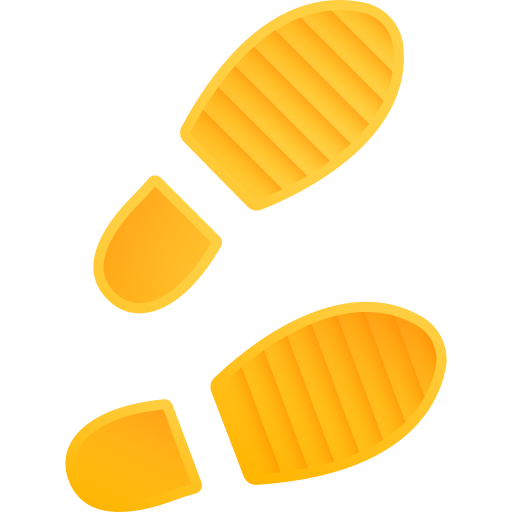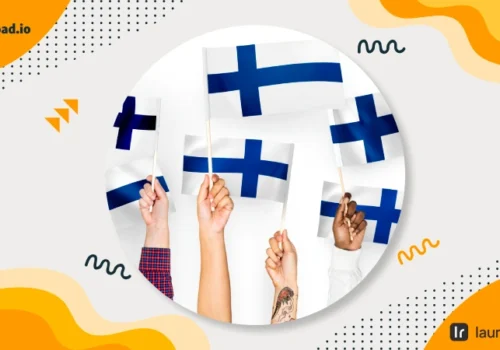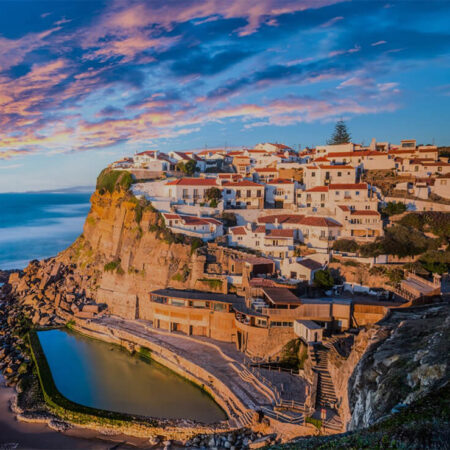Picture this: An Olympic athlete training with a world-class team in California. A groundbreaking scientist advancing cancer research in Boston. An award-winning filmmaker directing their next masterpiece in New York. What do they all have in common? They’re part of an exclusive group of talented individuals who call America their temporary home thanks to the O-1 visa.
From Nobel laureates to Oscar winners, the O-1 visa has been the gateway for extraordinary talent entering the United States. But don’t let the word “extraordinary” intimidate you – while this visa is designed for exceptional individuals, understanding if you qualify might be simpler than you think.
Table of Contents
 What You’ll Learn in This Guide
What You’ll Learn in This Guide
Think of this guide as your friendly navigator through the O-1 visa landscape. We’ll walk you through:
- The different types of O-1 visas (yes, there’s more than one!)
- What makes someone “extraordinary” in the eyes of U.S. immigration
- How to apply (without getting lost in the paperwork)
- Tips for bringing your support team and family along
- Real ways to make your application stronger
 Who Should Read This Guide?
Who Should Read This Guide?
This guide is perfect for you if:
- You’re at the top of your game in science, business, education, or athletics
- You’ve made your mark in the arts, film, or television industry
- You’re an essential team member supporting someone exceptional in their field
- You’re an employer looking to bring extraordinary talent to your U.S.-based team
- You’re a family member of someone considering an O-1 visa
Even if you’re just starting to explore your options for working in the United States, this guide will help you understand if the O-1 path might be right for you.
Do You Have a Destination In Mind
Launchroad can help you find the perfect country for your startup. Schedule a free demo today.
 What Makes You “Extraordinary”? O1 Visa Requirements
What Makes You “Extraordinary”? O1 Visa Requirements
Ever wonder what makes someone “extraordinary” in the eyes of U.S. immigration? Don’t worry – you don’t need to have a Nobel Prize or an Oscar to qualify. Let’s find out what it really means for different fields.
For Scientists 👩🏻🔬, Business Leaders 👨🏻💼, Educators 👩🏻🏫 & Athletes 🤾🏻♀️
Think of this as being a standout player in your field. You might qualify if you:
- Have won major awards in your field
- Are featured in professional publications
- Serve as a judge of others’ work
- Have made original contributions to your industry
- Command a high salary for your work
- Are part of prestigious professional associations
🌍 Real-World Example:
Meet Sarah, a biotech researcher who qualified for an O-1 visa. While she hadn’t won a Nobel Prize, she had:
- Published 15 peer-reviewed papers
- Secured two patents for innovative medical devices
- Been invited to speak at major international conferences
- Received significant research grants
For Artists 🎨
In the arts world, “extraordinary” means being well-known and respected in your field. You might be a good fit if you:
- Have had major exhibitions or performances
- Received excellent reviews in major newspapers or arts publications
- Won awards or prizes for your work
- Are known by other artists and critics
- Have performed at well-known venues
- Have work displayed in museums or galleries
🌍 Real-World Example:
Take David, a contemporary dancer who qualified because he:
- Performed lead roles with respected dance companies
- Received great reviews in major dance publications
- Taught master classes at prestigious dance schools
- Choreographed original pieces performed at major venues
For Film & TV Professionals 📺
Working in movies or television? Here’s what might make you extraordinary:
- Having major screen credits
- Winning or being nominated for important industry awards
- Getting recognition in trade publications
- Being part of commercially successful productions
- Having high-profile recommendations from industry leaders
🌍 Real-World Example:
Consider Maria, a cinematographer who qualified based on:
- Working on several award-winning independent films
- Being featured in cinematography magazines
- Receiving nominations at film festivals
- Getting strong recommendations from well-known directors
Success Story Spotlight: Breaking Myths
Meet James, a software engineer who thought he wasn’t “extraordinary enough.” He qualified because he:
- Created a popular app used by millions
- Filed several tech patents
- Wrote influential articles about coding
- Spoke at major tech conferences
- Earned significantly above average for his position
The key takeaway? Being “extraordinary” doesn’t mean being world-famous. It means being consistently recognized as excellent in your field through various achievements and contributions.
💡 Pro Tip: Start collecting evidence of your achievements now. Keep copies of:
- Awards and certificates
- Press coverage
- Performance reviews
- Recommendation letters
- Proof of membership in professional organizations
- Evidence of your salary or consulting fees
📌 Remember: You don’t need to meet all possible criteria. A strong showing in several areas often makes a compelling case for “extraordinary ability.”
📌 Must Read: USA EB-1 Visa Process: Tips and Strategies 👈
 O-1 Visa Application: A Step-by-Step Guide
O-1 Visa Application: A Step-by-Step Guide
Let’s discuss exactly what you need and how to put together a winning package. Think of this as packing for a very important trip—you’ll want to make sure you have everything you need!
Your Essential Documentation Checklist 📋
Here’s everything you’ll need to gather:
Must-Have Documents
- Your valid passport
- Form I-129 (your employer will file this)
- Proof of your extraordinary abilities (we’ll explain what counts below)
- A written contract or job offer
- Your work schedule or event itinerary
- An advisory opinion from experts in your field
Evidence of Your Excellency
Include at least three of these:
- Major awards or prizes
- Membership in prestigious groups
- Published articles about you or your work
- Articles you’ve written
- Evidence of high salary
- Proof of commercial success
- Letters from experts in your field
Getting Your Advisory Opinion ⭐
Think of the advisory opinion as a professional reference letter on steroids. Here’s what you need to know:
- What it is: A written statement from experts in your field saying you’re as good as you claim
- Who writes it: Usually, a professional organization or labor union in your field
- Why it matters: It’s your professional seal of approval
Pro Tip: Start this process early! Getting an advisory opinion can take several weeks.
Contract Requirements 📄
Your job offer or contract needs to spell out:
- What exactly you’ll be doing
- How long you’ll be doing it
- How much you’ll be paid
- Any special work conditions
Keep it clear and detailed – this helps show that you’re coming for a specific, important purpose.
Planning Your Itinerary 📅
Your itinerary should include:
- Start and end dates for your work
- Locations where you’ll work
- Specific events or projects you’ll be involved in
- Any travel between different work locations
Pro Tip: Be as specific as possible, but don’t worry if some details might change later.
Common Mistakes to Avoid ⚠️
Don’t let these common slip-ups slow down your application:
- Missing Documents
- Double-check everything against the checklist
- Make copies of everything
- Keep digital backups
- Poor Organization
- Label all documents clearly
- Put them in logical order
- Include a table of contents
- Timing Issues
- Start gathering documents early
- Allow extra time for translations if needed
- Don’t wait until the last minute
- Translation Problems
- Get professional translations for non-English documents
- Include both original and translated versions
- Make sure translations are certified
- Incomplete Information
- Fill out all forms completely
- Don’t leave anything blank
- Explain any unusual situations
💡 Success Secret: Create a master folder (both physical and digital) with all your documents organized by category. This makes it easier to:
- Find what you need quickly
- Spot any missing items
- Add new documents as you get them
- Share with your lawyer if you have one
📌 Must Read: What is EB-2 Visa? + Detailed Information 👈
 The O-2 Visa: Guide to Supporting Extraordinary Talent
The O-2 Visa: Guide to Supporting Extraordinary Talent
Are you the person behind the scenes making magic happen? The O-2 visa might be your ticket to working in the United States. Let’s explore how you can join the talented individual you support on their U.S. journey.
Who Can Get an O-2 Visa? 🤝
The O-2 visa is designed for the essential team members who support O-1 visa holders. Think of it as recognition that extraordinary talent often needs extraordinary support!
You might qualify if you:
- Are critical to the O-1 holder’s work
- Have unique skills that are hard to find
- Have worked with the O-1 holder before
- Are essential for specific projects or performances
🌍 Real Example:
Meet Tom, a sound engineer who got his O-2 visa because he:
- Had worked with a famous musician for 5 years
- Knew all the custom equipment settings
- Was crucial for live performances
- Had unique experience with the artist’s style
Special Rules for TV and Film Folks 🎬
Working in television or film? Here’s what makes you eligible:
- Having a long working relationship with the O-1 artist
- Being essential for projects happening both in and outside the U.S.
- Having special skills needed for the production
- Being familiar with the specific equipment or techniques used
Success Story:
Sarah, a makeup artist, qualified because she:
- Created signature looks for a famous actor
- Knew specific prosthetic techniques
- Had worked on previous films with the actor
- Was needed for consistent appearance across scenes
Building Your Case 📋
Here’s how to show you’re essential:
- Prove Your Experience
- Document past work with the O-1 holder
- Show unique skills you bring
- Explain why you’re irreplaceable
- Get letters from industry experts
- Show Your Connection
- Detail your working history together
- Explain specific projects you’ve done
- Highlight successful collaborations
- Demonstrate why continuity matters
- Document Your Skills
- List specialized training
- Include certifications
- Show unique abilities
- Explain technical expertise
Your Link to the O-1 Principal 🔗
The key to a successful O-2 application is showing your essential connection to the O-1 holder. Strong applications show:
- Why You’re Needed
- Specific tasks only you can do
- Special knowledge of their work
- Unique understanding of their needs
- Critical role in their success
- Working History
- Length of time working together
- Important projects completed
- Successful collaborations
- Shared achievements
💡 Pro Tips for Success:
- Tell Your Story
- Explain how you started working together
- Share successful project examples
- Show why your role matters
- Include specific details
- Get Strong Support
- Letters from the O-1 holder
- Industry expert recommendations
- Producer or director statements
- Project documentation
- Be Specific
- Detail exact duties
- Explain unique requirements
- Show why U.S. workers can’t fill the role
- Highlight special skills
Remember This! ⭐
- Your visa is tied to the O-1 holder
- You can only work on their specific project
- The length of stay matches their visa
- You need your own application, even though it’s connected
📌 Must Read: Is the EB-3 Visa Right for You? A Detailed Analysis 👈
Do You Have a Destination In Mind
Launchroad can help you find the perfect country for your startup. Schedule a free demo today.
 O-1 or O-2 Visa Application process
O-1 or O-2 Visa Application process
Getting your visa doesn’t have to be complicated. Let’s break down the process into simple, manageable steps and help you plan your timeline and budget.
Timeline: When to Start Planning 📅
Start early! Here’s a typical timeline to keep you on track:
6-8 Months Before You Need to Start Work
- Gather your achievements and evidence
- Start collecting recommendation letters
- Begin organizing your documentation
3-4 Months Before
- Get your advisory opinion
- Finalize your contract
- Prepare your detailed itinerary
45-60 Days Before
- Submit your application
- Plan for any possible delays
- Prepare for visa interview
Step-by-Step Application Guide 🚀
Step 1: Partner with Your Employer
- Confirm job details
- Get a written contract
- Verify they’ll handle the petition
Step 2: Gather Your Documents
- Passport (valid for at least 6 months)
- Professional achievements
- Support letters
- Contract and itinerary
Step 3: Submit Your Application
Your employer will:
- File Form I-129
- Include all supporting documents
- Pay filing fees
- Track the application
Step 4: Visa Interview
After approval:
- Schedule embassy appointment
- Prepare required documents
- Attend interview
- Get your visa
Costs 💰
Here’s what you can expect to pay:
Basic Fees
- I-129 Filing Fee: $460
- Visa Application Fee: $190
- Optional Premium Processing: $2,500
Other Possible Costs
- Translation services ($50-200 per document)
- Document shipping ($50-100)
- Medical exam (if required, $200-500)
- Travel to embassy ($varies)
💡 Money-Saving Tip: Some employers cover all or part of these fees. Ask about this during contract negotiations!
Processing Times ⏱️
Regular Processing
- I-129 Petition: 2-4 months
- Embassy Processing: 1-3 weeks
- Total Time: 3-5 months
Premium Processing
- I-129 Petition: 15 calendar days
- Embassy Processing: Same as regular
- Total Time: 1-2 months
Expedited Options
Need it faster? Here are your choices:
- Premium Processing
- Guaranteed 15-day processing
- Costs extra $2,500
- Best for urgent needs
- Emergency Appointments
- Available in special cases
- Must prove urgent need
- Contact embassy directly
Red Flags to Avoid 🚫
- Common Application Mistakes
- Missing signatures
- Incomplete forms
- Inconsistent information
- Poor quality copies
- Timeline Issues
- Starting too late
- Rushing documentation
- Missing deadlines
- Cutting it too close
📌 Must Read: EB-4 Visa: A Full Guide for Skilled Workers 👈
 Life in the U.S. on Your O-1 or O-2 Visa: What to Expect
Life in the U.S. on Your O-1 or O-2 Visa: What to Expect
Got your O-1 or O-2 visa approved? Congratulations! Let’s walk through everything you need to know about living and working in the United States with your new visa.
How Long Can You Stay? ⏳
Initial Stay Period
- Up to 3 years to start
- Extra 10 days before work begins
- Extra 10 days after work ends
Good to Know:
- You can only work during your approved period
- Those extra days are for settling in and wrapping up
- Keep track of your exact dates!
Need More Time? Let’s Talk Extensions 📅
Want to stay longer? You can extend your stay if:
- You’re continuing the same work
- Your employer still needs you
- You maintain your extraordinary status
How to Extend:
- Your employer files a new petition
- Include proof of ongoing work
- Update any changed information
- Submit before current visa expires
💡 Pro Tip: Start the extension process at least 45 days before your visa expires.
Changing Jobs or Employers 🔄
For O-1 Visa Holders
- New employer must file new petition
- Can’t start new job until approved
- Keep documentation of everything
- Previous employer must agree to transfer
For O-2 Visa Holders
- Must stay with same O-1 holder
- Can only change if O-1 holder changes
- Need new petition for new project
Special Rules for Athletes 🏃♀️
Got traded to a new team? Here’s what happens:
- 30 days to file new paperwork
- Can keep playing during this time
- New team must submit quickly
- Don’t miss the 30-day deadline!
Family Life in the U.S. 👨👩👦
Who Can Join You?
- Your spouse
- Unmarried children under 21
- They’ll get O-3 visas
What Family Members Can Do:
✅ Live in the U.S.
✅ Study full or part-time
✅ Travel in and out of the country
❌ Work in the U.S.
Important Things to Remember 🌟
- Work Restrictions
- Only work for approved employer
- Stick to approved activities
- Keep documents updated
- Report major changes
- Travel Tips
- Keep visa and passport valid
- Carry work documents when traveling
- Plan ahead for renewals
- Check travel restrictions
- Your Rights
- Fair payment for your work
- Safe working conditions
- Return transportation if employment ends early
- Access to healthcare options
Role of Launchroad in The Seccess of Your Startup Visa

LaunchRoad is your trusted partner for starting a business abroad. We guide you in choosing the right country, understanding visa requirements, and getting your startup off the ground. As an experienced startup visa consultant, we offer expert startup visa consultation to help you navigate the complexities of international expansion. Our team provides the support, mentorship, and resources you need to succeed in the global market.
What are the requirements for an O-1 visa?
To qualify for an O-1 visa, you must demonstrate:
- Extraordinary Ability or Achievement: You must have a level of expertise or achievement that is significantly above that ordinarily encountered.
- Recognition: Your work must be recognized nationally or internationally.
- Temporary Work: You must be coming to the US temporarily to continue work in your field of expertise.
Can an O-1 visa holder's spouse work in the US?
Yes, the spouse of an O-1 visa holder can obtain an O-3 visa, which allows them to live in the US but does not authorize them to work.
Can an O-1 visa be transferred to a new employer?
Yes, an O-1 visa can be transferred to a new employer. The new employer must file a new I-129 petition with USCIS to request the transfer.
Can O-1 dependents work in the US?
No, O-1 dependents (spouses and children under 21) on O-3 visas are not authorized to work in the US.
Can an O1 visa be extended beyond the initial period?
Yes, O-1 visas can be extended. If you need to continue your work in the US beyond the initial period, your employer must file a new I-129 petition with USCIS.
Can an O1 visa holder study in the US?
No, O-1 visa holders are not authorized to study full-time in the US. However, they may take part-time courses or enroll in non-degree programs.
Can an O1 visa be renewed?
While the term "renewal" isn't strictly used, O-1 visas can be extended. As mentioned above, your employer must file a new I-129 petition to extend your stay.
How can I apply for an O1 visa?
To apply for an O-1 visa, a US employer, agent, or foreign employer must file Form I-129, Petition for Nonimmigrant Worker, on your behalf. This petition must accompany extensive documentation proving your extraordinary ability or achievement.
How much does it cost to apply for an O1 visa?
The exact cost can vary depending on factors like filing fees and attorney fees. However, government filing fees are associated with the I-129 petition and potential additional fees for expedited processing or premium processing. Please check the cost part of the post for more details.
Is an O1 visa a dual-intent visa?
No, an O-1 visa is not a dual-intent visa. This means that O-1 visa holders are not allowed to pursue a green card while on an O-1 visa.
Is an O1 visa an immigrant visa or a nonimmigrant visa?
An O-1 visa is a nonimmigrant visa, meaning it is intended for temporary stays in the US.
Does an O1 visa lead to permanent residency?
While an O-1 visa itself does not directly lead to permanent residency, it can be a pathway. After working in the US for a certain period on an O-1 visa, individuals may be eligible to apply for a green card through employment-based immigration.
Does an O1 visa require an interview?
No, an O-1 visa does not typically require an interview. However, it's possible that the US Consulate may request an interview in specific cases.
Does an O1 visa lead to a green card?
While an O-1 visa doesn't directly lead to a green card, it can be a stepping stone. After accumulating a certain amount of work experience in the US on an O-1 visa, individuals may be eligible to apply for a green card through employment-based immigration.
Does an O1 visa require sponsorship from a US employer?
Yes, an O-1 visa requires sponsorship from a US employer. The employer must file a Form I-129 petition with USCIS on your behalf.
Does an O1 visa require a J-1 waiver?
No, an O-1 visa does not require a J-1 waiver. J-1 waivers are typically required for individuals who have participated in a J-1 exchange visitor program and have a two-year home residency requirement.
Is an O1 visa better than an H1B visa?
Whether an O-1 visa is "better" than an H1B visa depends on your specific circumstances. O-1 visas are generally for individuals with extraordinary ability or achievement, while H-1B visas are for individuals with specialized knowledge. O-1 visas can offer certain advantages, such as potential eligibility for a green card more quickly and fewer numerical limitations. However, H-1B visas can be more widely applicable for certain types of jobs.
What is the typical salary range for O1 visa holders?
The salary range for O-1 visa holders can vary widely depending on their specific field, experience, and location. However, O-1 visa holders typically command higher salaries than average US workers.
Do companies in the US sponsor O1 visas?
Yes, many companies in the US sponsor O-1 visas for highly skilled individuals. However, the sponsorship process can be complex and requires substantial documentation.
How should I handle an O1B visa denial?
If your O-1B visa petition is denied, you can consider the following:
- Review the Denial Notice: Carefully review the denial notice to understand the specific reasons for the denial.
- Consult with an Immigration Attorney: An attorney can help you assess the reasons for the denial and determine potential options, such as filing a motion to reconsider or appealing the decision.
- Gather Additional Evidence: If possible, gather additional evidence to strengthen your case for future applications.
- Consider Alternative Visa Options: If an O-1 visa is not feasible, explore other visa categories that may be suitable for your circumstances.

 What You’ll Learn in This Guide
What You’ll Learn in This Guide Who Should Read This Guide?
Who Should Read This Guide? What Makes You “Extraordinary”? O1 Visa Requirements
What Makes You “Extraordinary”? O1 Visa Requirements O-1 Visa Application: A Step-by-Step Guide
O-1 Visa Application: A Step-by-Step Guide The O-2 Visa: Guide to Supporting Extraordinary Talent
The O-2 Visa: Guide to Supporting Extraordinary Talent O-1 or O-2 Visa Application process
O-1 or O-2 Visa Application process Life in the U.S. on Your O-1 or O-2 Visa: What to Expect
Life in the U.S. on Your O-1 or O-2 Visa: What to Expect







Leave a Reply